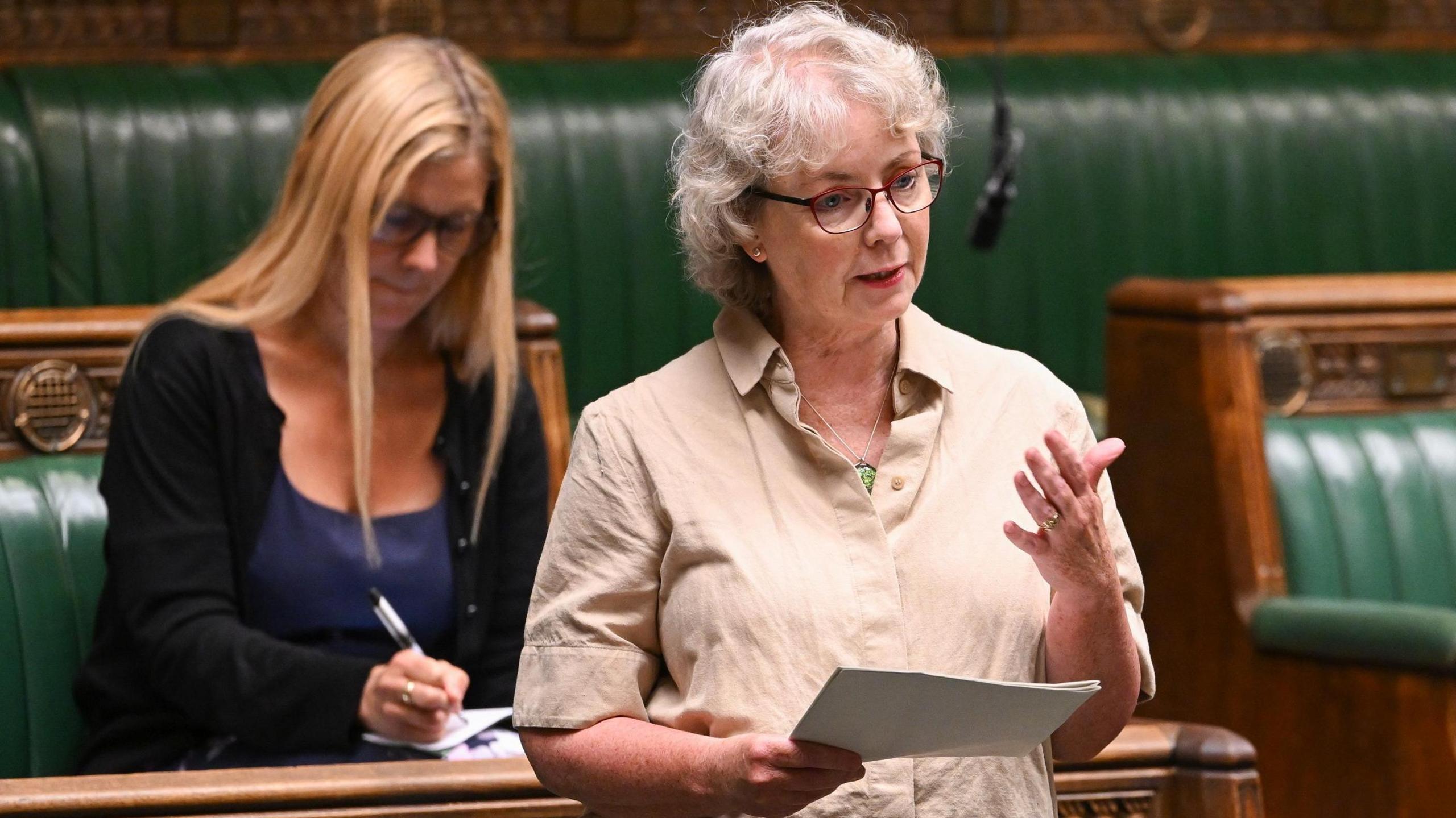Real 'Call the Midwife' team's joy in helping mums
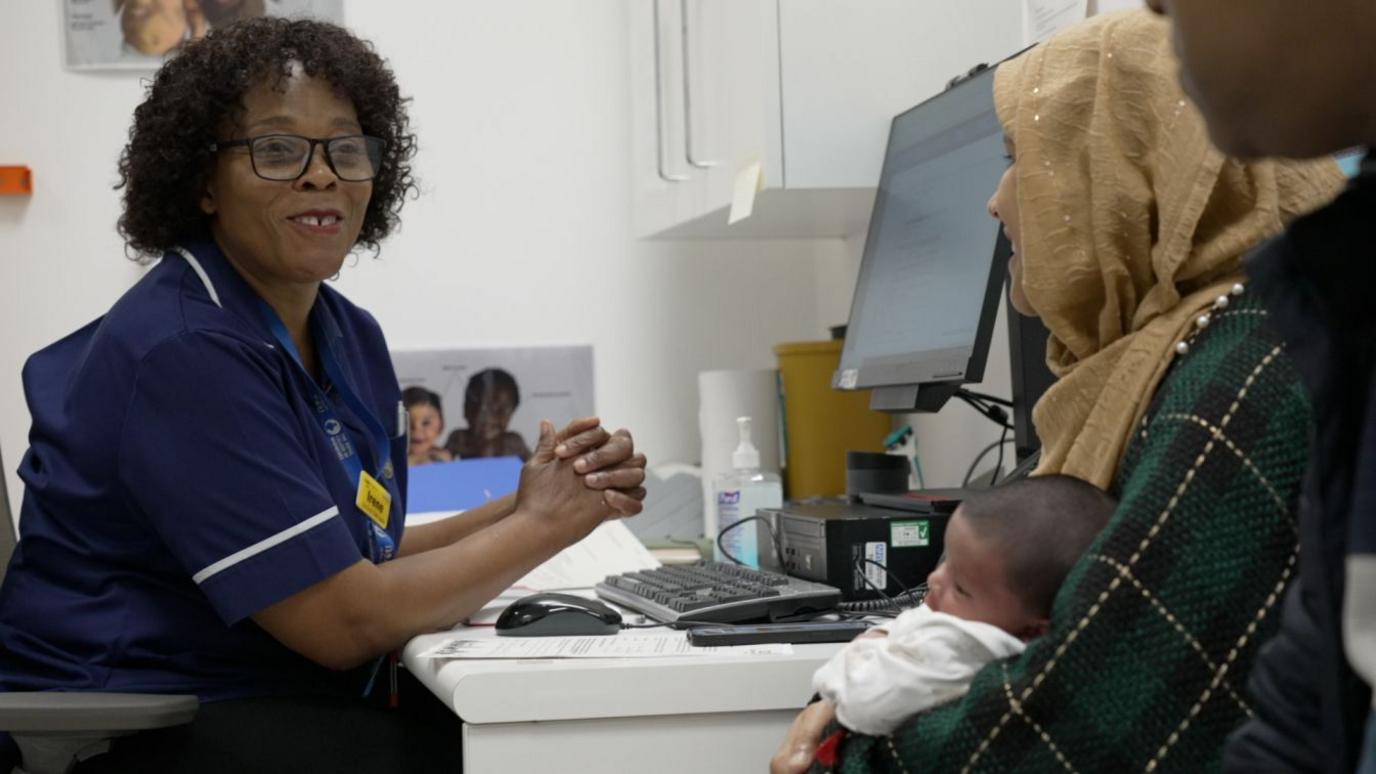
Irene Namugere is one of the "Real Midwives of Poplar"
- Published
With the new series of Call the Midwife on our screens, the popular BBC One drama set in Poplar, BBC London pays a visit to the real-life midwives of the east London area to see how they're helping mothers.
"You stop counting when you get to a thousand," says midwife Irene Namugere with a chuckle.
After nearly 20 years working in the role in east London, she says her passion remains as strong as ever.
"I think delivering a baby and bringing a child in, helping mum to bring a life into the world, I think that's the best thing when you see the joy on their faces, and you are a part of that - it's beautiful," she says.
Irene is a midwife team manager at Pontoon Dock Health Centre in Newham, an area with some of the highest birth rates in London.
She's one of the "Real Midwives of Poplar" we spent a busy few days filming with, the results of which you can watch on the iPlayer.
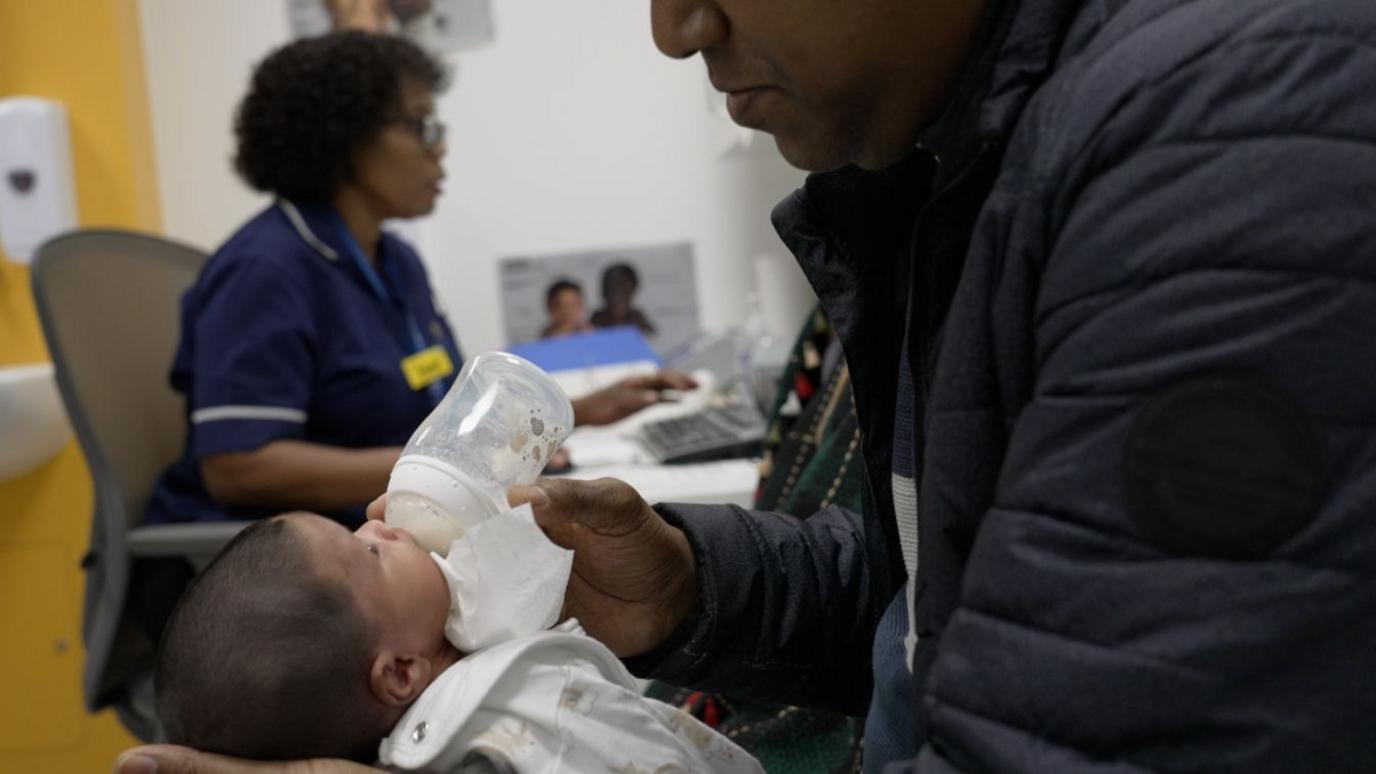
Irene has lost count of the number of young families she has helped over two decades
While most of the 11,000 babies here and in Tower Hamlets are born in hospital, much of the care is delivered by a team of community midwives.
These days they're more likely to go out and about in their cars, rather than the bikes favoured by their fictional counterparts from Call the Midwife.
The hit series was originally based on the memoirs of Jennifer Worth, who worked with the community of St John the Divine out of their convent in Poplar.
The nuns and midwives have moved on but the building on Lodore Street, on which Nonnatus House is based, remains.
Homebirth midwife Hannah Shukla has worked in the area for the last three years.
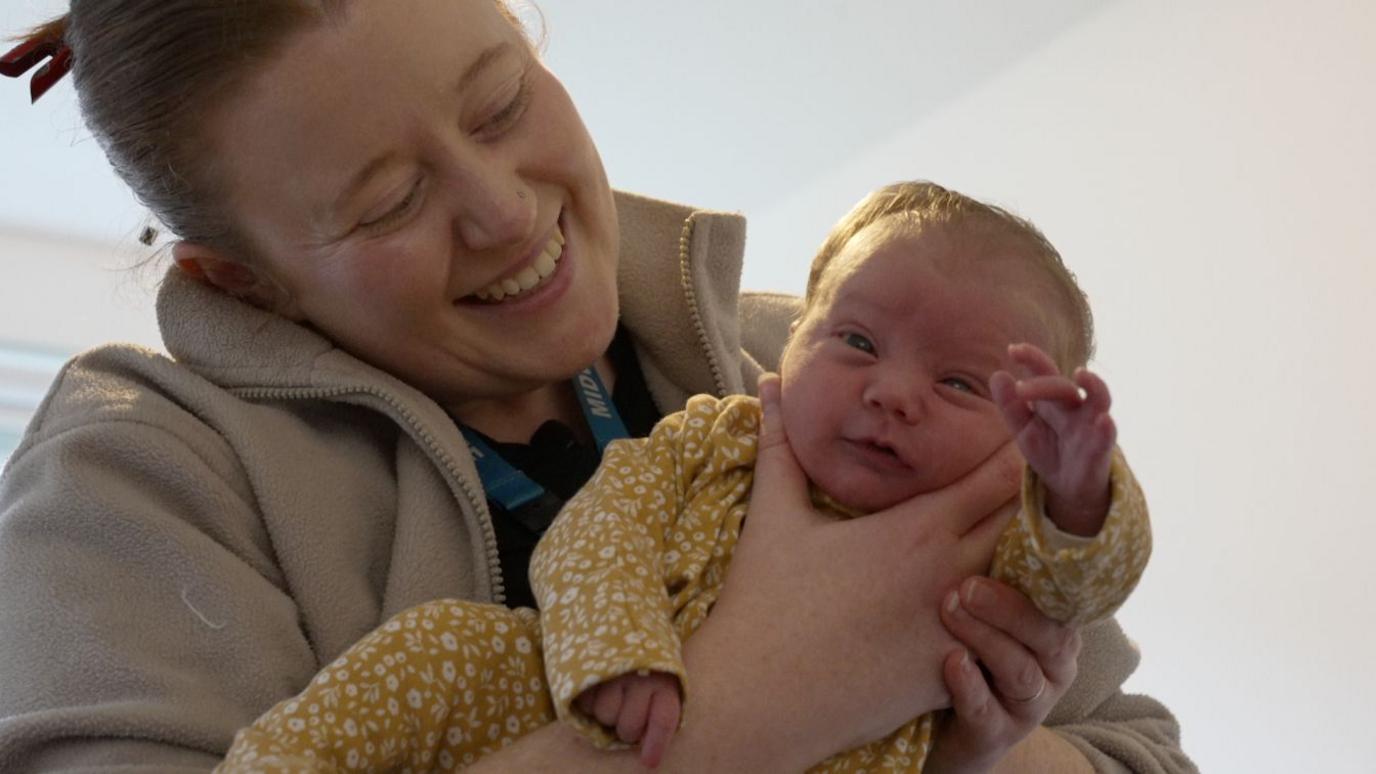
Hannah says she feels like a successor to her fictional Call the Midwife colleagues
Hannah is also a fan of her fictional colleagues from the BBC drama.
"I love to watch Call the Midwife," she says.
"It's one of the only birth shows on TV that is a bit more accurate and realistic and not traumatising for women.
"I really do feel like I do their jobs, I cover the area that they worked and they were very much in the community, kind of going around seeing these women and families in their homes and I get to do that. I'm so privileged."
Hannah may be dedicated to the job, but the profession as a whole is facing difficult times.
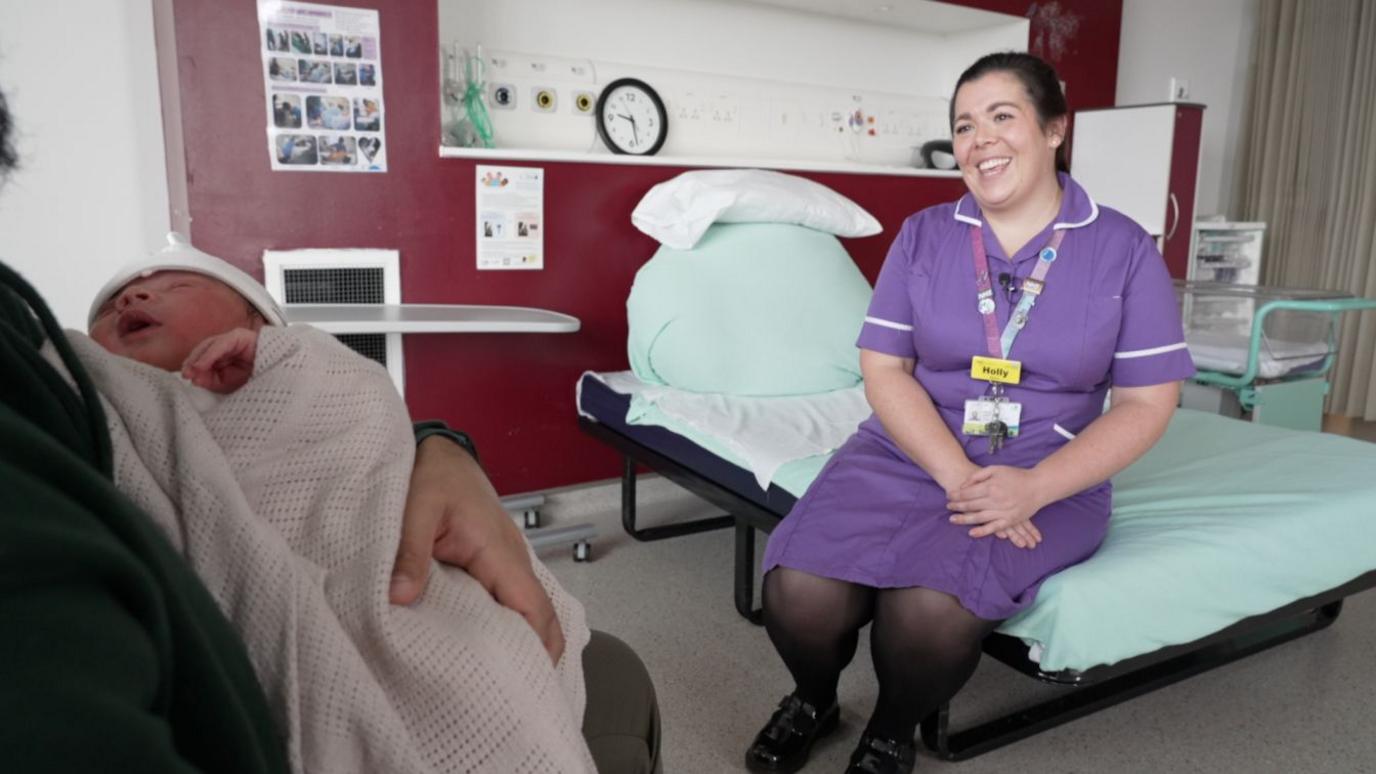
Holly Eastlake says challenging conditions are putting prospective midwives off the profession
Recruitment is becoming harder and there are shortages here in east London as there are around the country.
Holly Eastlake runs the midwife-led birthing team out of the Royal London Hospital in Whitechapel, the largest in the area.
She has been a midwife for 13 years, but says these are challenging times for the profession.
Long, anti-social hours, she says, and the removal of bursaries for trainee midwives have made things tougher.
She explains: "We've gone from what felt like having a lot of midwifery staff, a lot of people interested in becoming midwives, to it now becoming not such a desirable profession.
"We're noticing that our numbers for students and also retaining staff are really, really decreasing as well which is really changing the landscape of midwifery."
Mosun Ojo-Williams has seen many of those changes. Aged 60, she's now considering retiring after more than 20 years in the East End.
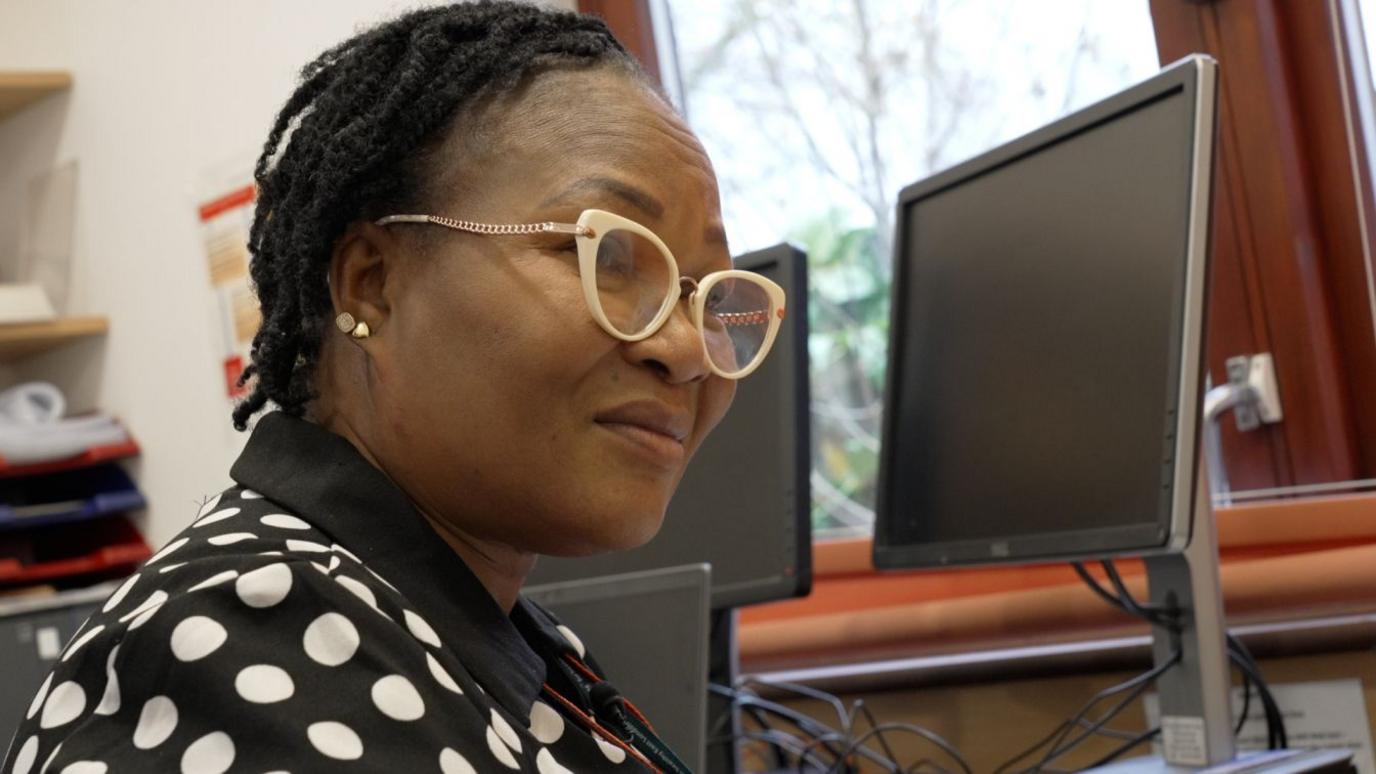
Mosun is contemplating life after midwifery despite the joy the role brings her
For now, she's still at the frontline in her clinics at the local health centre and on the road visiting new families in their homes.
We followed her to see 12-day-old Nuah and his first time parents Elandi and Marius.
Baby Nuah is slightly jaundiced so Mosun gives the family tips on what to do.
'No baby guidebook'
"It actually is so helpful," the new mother tells the BBC.
"I don't think we've had that where we come from, where someone actually follows up personally and comes to your home and sees what you're physically doing and giving you guidance so we were very excited.
"It's weird because you come home and there's not really a guidebook and it's quite reassuring having someone come through the door."
The Real Midwives of Poplar
Discover how real-life midwives take care of the newborn residents of Poplar, the London borough and home of hit TV show Call The Midwife.
As she leaves another satisfied client behind, Mosun heads off for the evening, contemplating an end to her midwife career.
"I'm thinking about that every day now that I'm over 60," she said.
"I'm just thinking will I really be able to walk away from it, but, we'll see, we'll see how it goes."
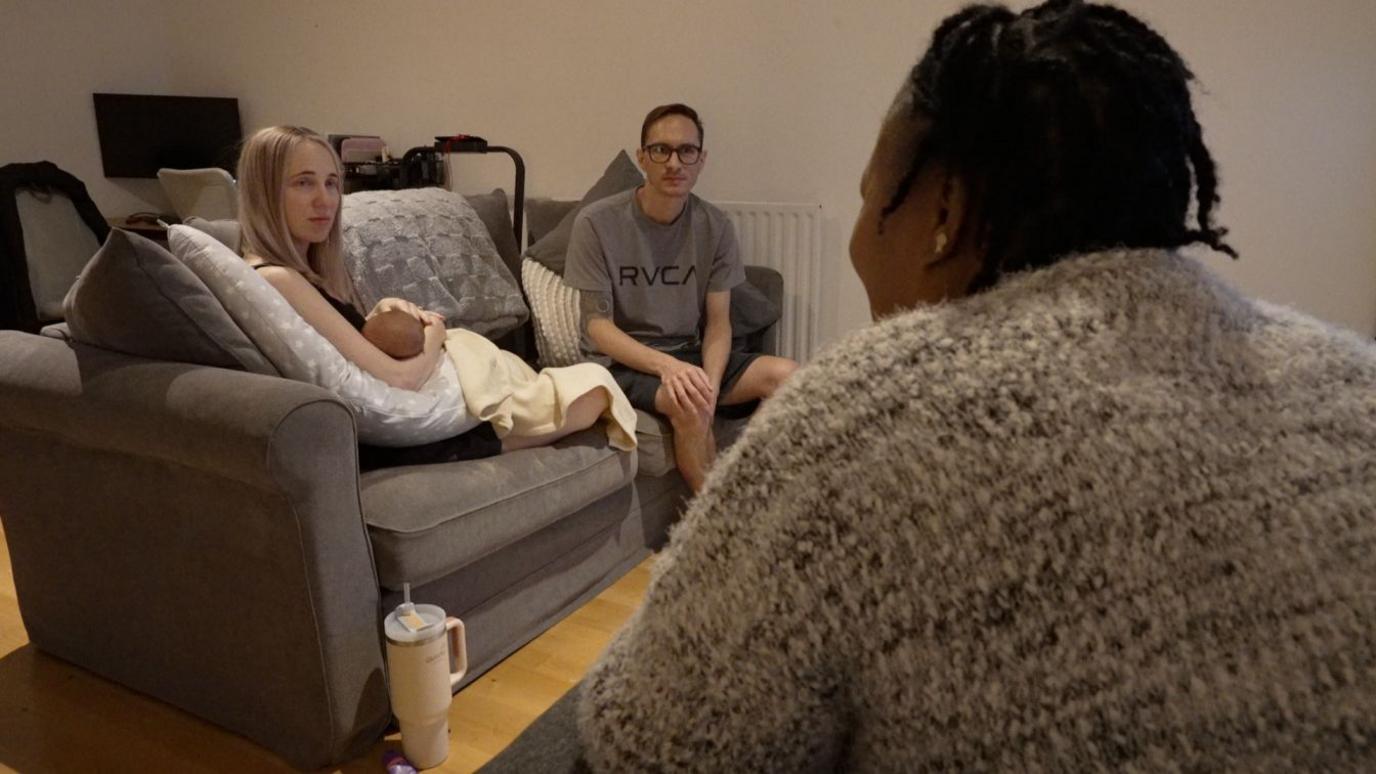
Mosun says supporting new mothers is what she lives for
Asked what the best part of the job is, Mosun says: "Meeting women, seeing brand new babies every time, you know, being part of the joy of a family, being part of the history - the history of bringing babies to life, being part of it is a thing of joy for me.
"Actually attending to the women, that's my life, that's all I live for is coming to see my women and supporting them throughout pregnancy and if I'm lucky to be part of the labour, delivering the baby, gives me the greatest joy."
Listen to the best of BBC Radio London on Sounds and follow BBC London on Facebook, external, X, external and Instagram, external. Send your story ideas to hello.bbclondon@bbc.co.uk, external
Related topics
- Published22 December 2024
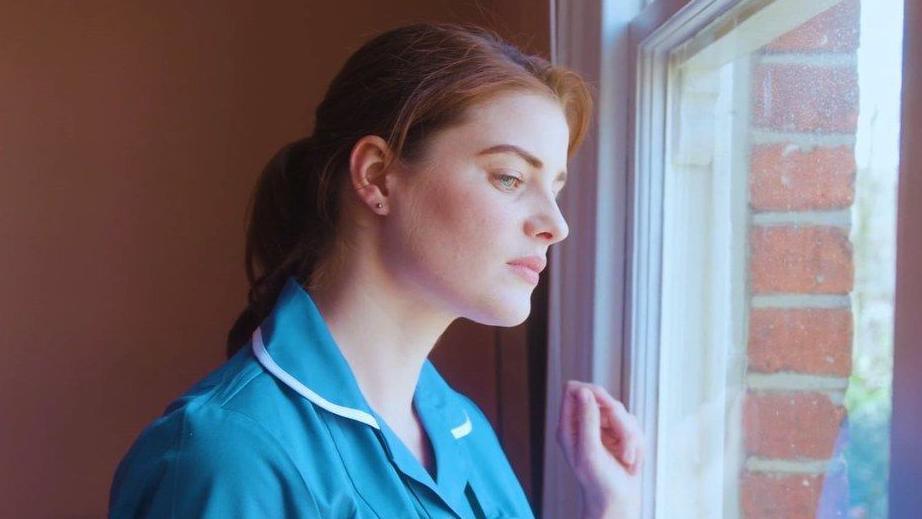
- Published11 December 2024
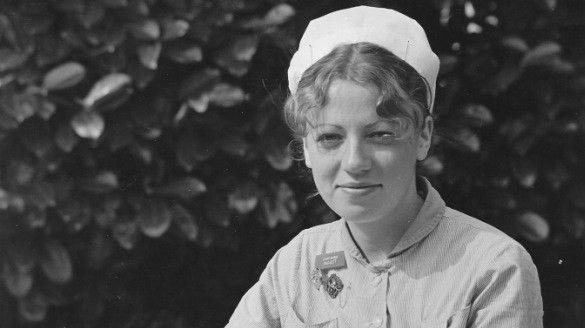
- Published10 October 2024
